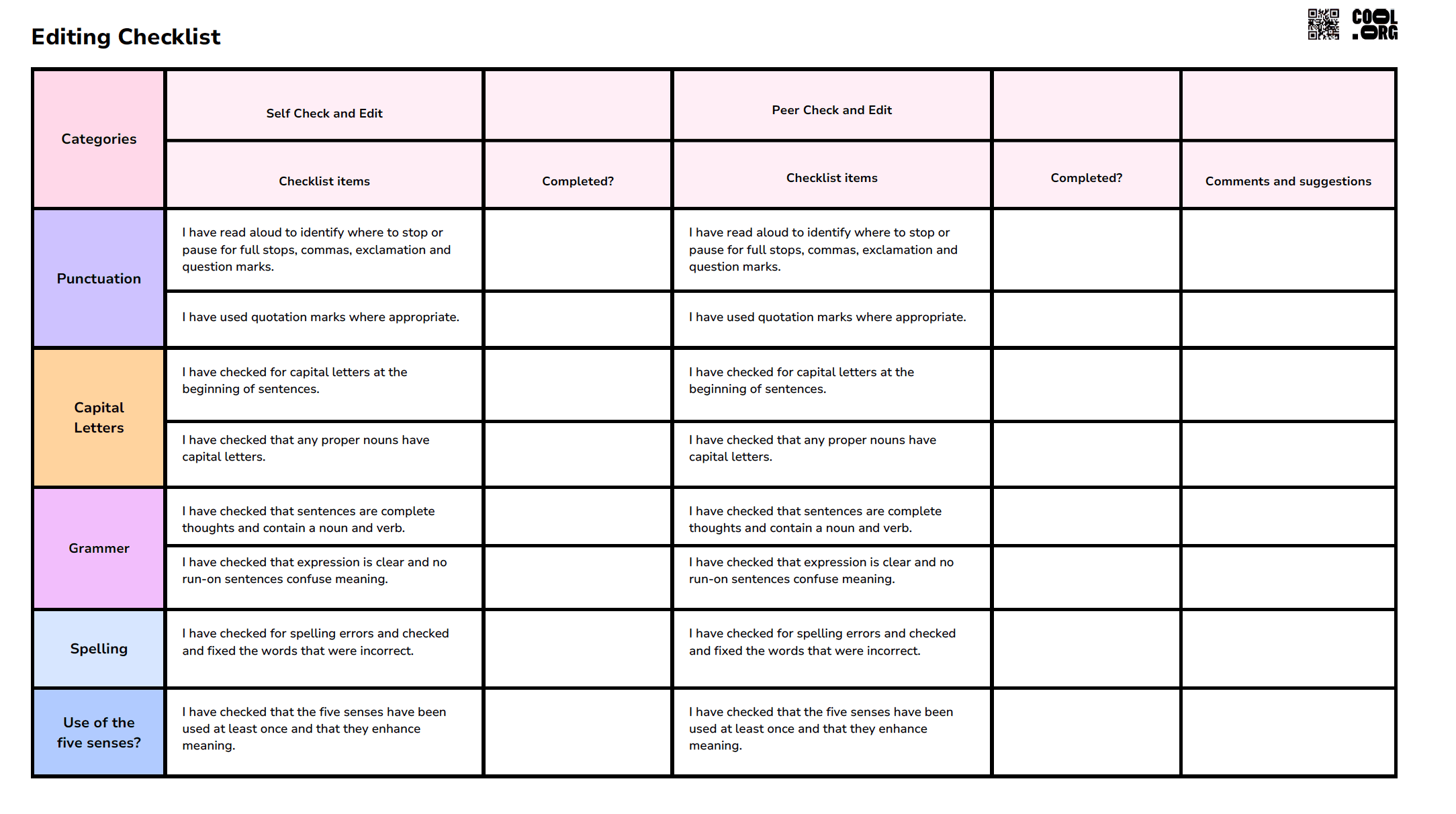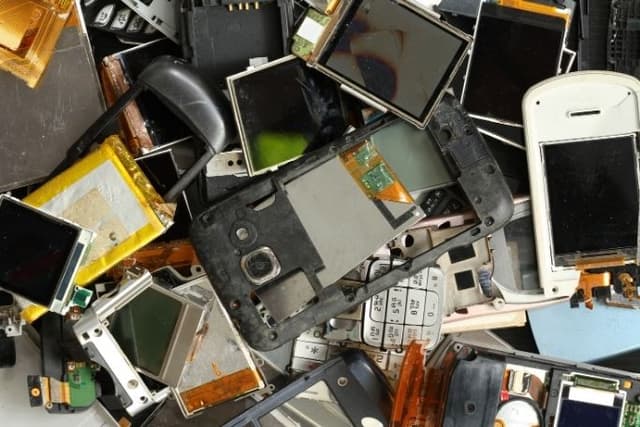
MobileMuster - Persuasive Writing (NAPLAN)
Lesson1 of 3 in this unit
SecondaryYear 7 - 8EnglishPersuasive writingEnvironmentalRecyclingSustainability
Summary
Lesson Guides and Printables
Lesson Plan
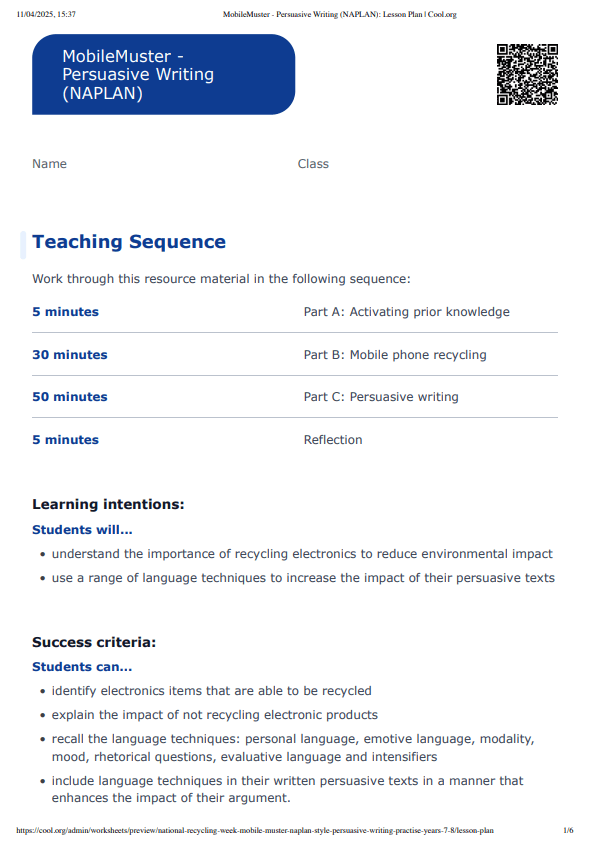
Student Worksheet
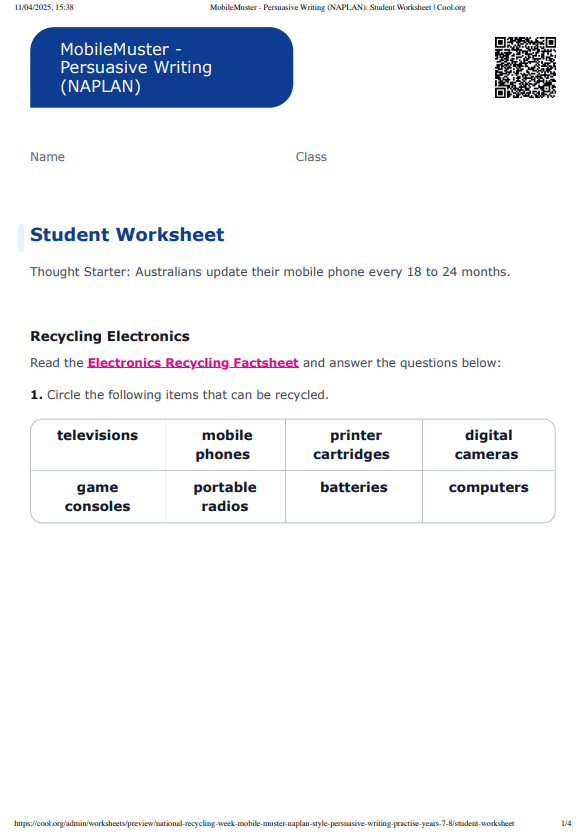
Teacher Content Info
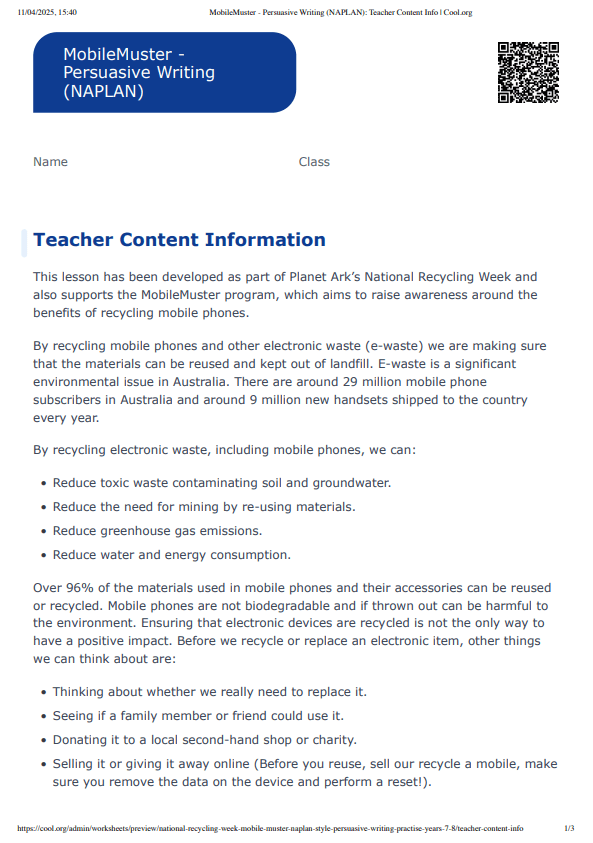
Editing Checklist
